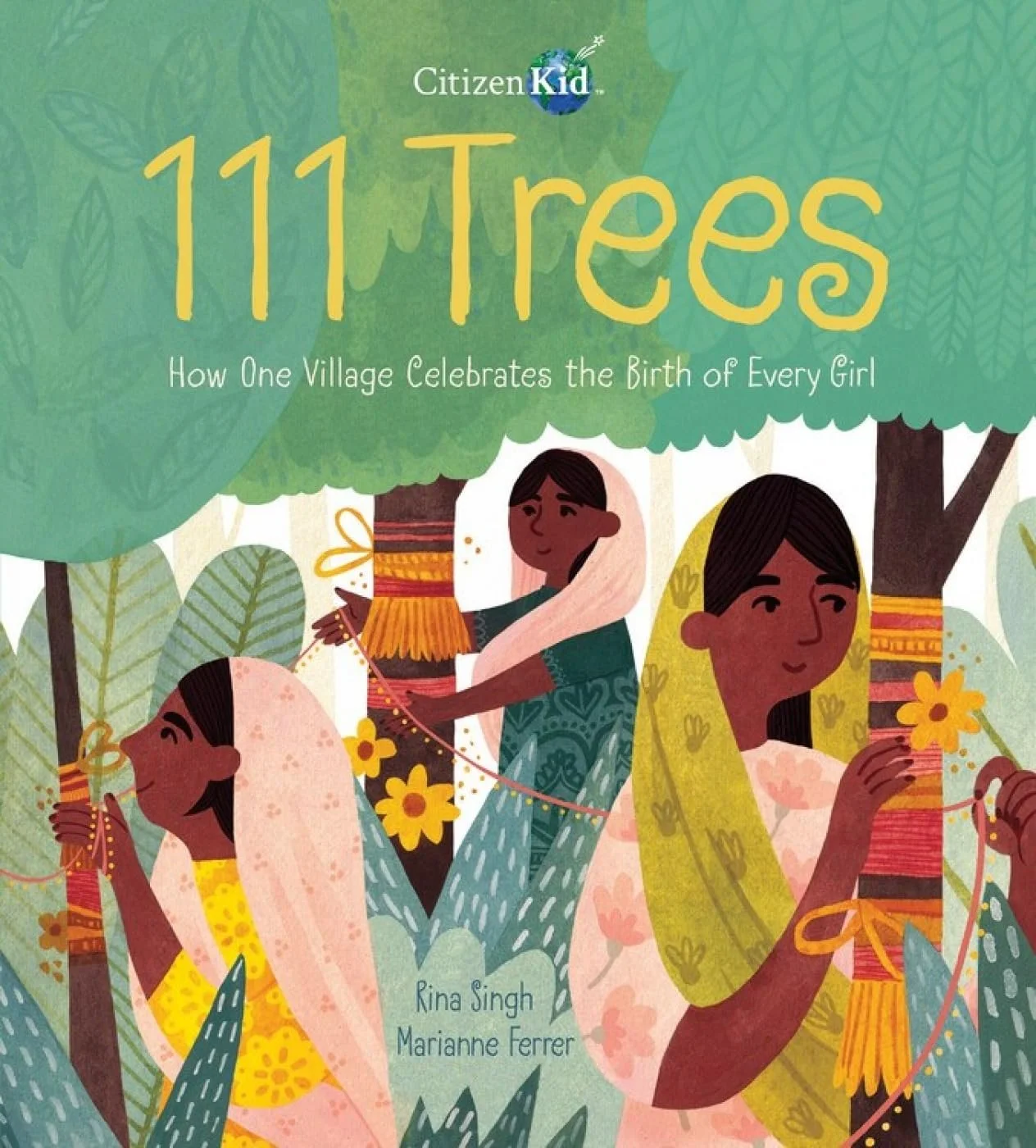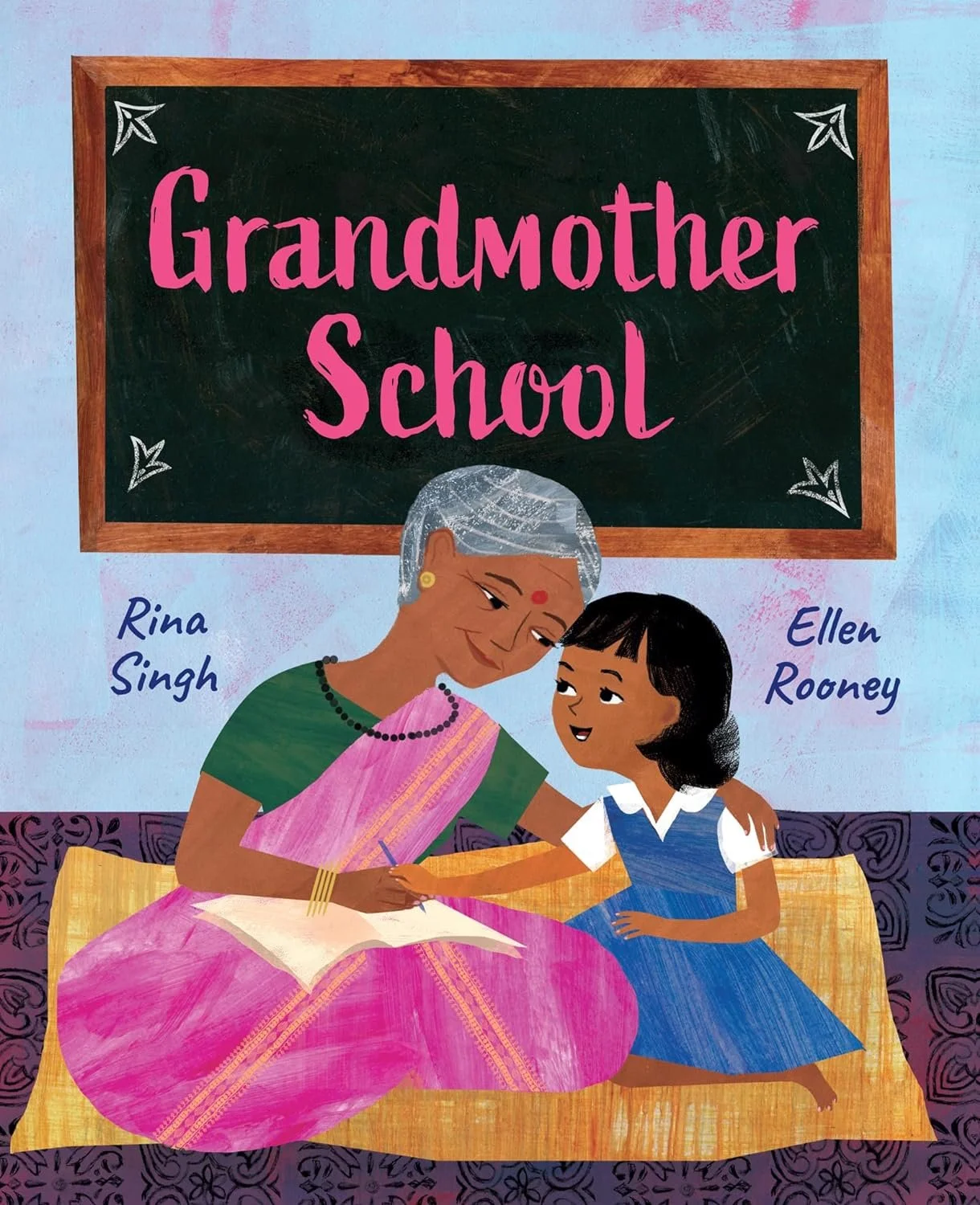Community Picture Books with Rina Singh
We are so excited to have Rina Singh join us today to share information about Community Picture Books!
Rina Singh is an award-winning Children’s Author and Spoken Word coach. She has an MFA in Creative Writing from Concordia University, Montreal, and a teaching degree from McGill University. As a writer, she is drawn to real life stories about social justice, the environment, and wildlife preservation.
Grandmother School, (Orca Books) which won the BC Yukon Prize for literature affirms the life-changing power of education. 111 Trees, (Kids Can Press) won the Social Justice literature award and inspires us to become eco-feminists. The Lion Queen was among the New York Library’s Best Books of 2023.
Her books have been translated in many languages and have received starred reviews from Kirkus, Publishers Weekly, and Booklist.
A lover of poetry, photography, beautiful books, and trees – she lives in a blue house in Toronto.
Reading picture books that explore community helps children forge deep ties to the world around them. These books play a crucial role in children’s development by nurturing empathy, comprehension, and a feeling of being part of something larger. With relatable stories and vibrant artwork, they expose children to various cultures, customs, and situations, encouraging them to value both their own community and beyond.
I’m going to share two of my books with you.
My inspiration for writing 111 Trees was Sundar Paliwal, an eco-feminist creating wonders in the small community of Piplantri in Rajasthan, India. I have been alarmed about nature and what we as humans have done to our environment. And gender inequality has always infuriated me. I gravitate towards stories that can help restore the balance. I got excited when I heard about this man planting 111 trees every time a girl was born in his village. I knew I had to write about him.
In Sundar’s story everything came together–– nature, activism, eco-feminism, and community. Since the story seemed too good to be true, I needed to see the village to believe it. So, in 2016, I went to India and planned a trip to Udaipur but was unable to get Sundar’s contact. I flew there anyways. (I don’t advise anyone should arrive unprepared like I did). I reached the village by taxi, and the local school principal welcomed me and contacted Sundar for me. I toured the village with him and then he invited me to meet his family. It was a beautiful day. He told me his story.
After the heartbreaking loss of his mother in childhood, and then his young daughter in adulthood, Sundar had a revelation in his grief–– he drew three lines 111 in the sand for three things: Water, Daughter, Trees, that became his mantra of action. He turned a desert village into a thriving community surrounded by forests. Marianne Ferrer helped me bring the story to life. The book got many awards including the 2021 Social Justice Award. Kat Caric, a blogger called the book a small miracle and said it could change the planet! Wow!
Grandmother School was inspired by true events that happened in 2016 in Phangane, a small village in Maharashtra, India. It is so remote that you probably wouldn’t find it on the map. I read a news clip that Yogendra Bangar, the village teacher thought to himself – that everyone in the village could read, write, and do enough math to get by except the 29 grandmothers. So, he built Aajibaichi Shala, a one room school for grandmothers. He invited them to attend, provided them with school bags and gave them bright pink saris as uniforms. They were all over the age of sixty, and the oldest grandmother was ninety. Some were hard of hearing and many of them forgot what they had learned too easily, but they all came, dressed in their bright pink saris. They were excited to go to school for the first time in their lives. I fell in love with the story.
The idea to write a fictional story set in that village came from a personal memory. The two characters are based on my grandmother and me. Biji, my grandmother was the most loving person and had also never gone to school. She used to tell me stories and I regret not teaching her anything in return. I dedicated this book to her memory.
I wanted to discover the joy that education would bring to the community of grandmothers. This is one of my favourite illustrations. Learning to sign her name was a milestone moment in Aaji’s life. The book is brilliantly illustrated by Ellen Rooney, and it won the 2021 Christie Harris Children’s Literature Prize.
Many of my stories are rooted in small and even remote communities that have been transformed by one individual’s activism. I personally don’t picket, march, rally, plant trees, or start schools for illiterate grandmothers, but the act of writing about these everyday heroes is my contribution to social change.
Maybe I’m an activist of words.




